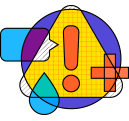@Sanam
Hello dear hopefully you are enjoying summer vacations. You really raised a point that is mostly talk of town , people who are not welcoming towards any change especially technological changes.
AI has definitely transformed how I think, plan, and teach. As a teacher, I love using tools because they help me shape my thoughts clearly and write exactly what I want to say—especially when I’m trying to turn big ideas into creative, meaningful content for my students.
I see AI as a powerful support system, not a replacement. It saves time on admin tasks, helps with lesson ideas, and even assists in designing presentations or student activities. This gives me more time to focus on what truly matters: building confidence, encouraging creativity, and forming real human connections in my classroom.
But yes, we must strike a balance. AI can assist, but it can’t replace the empathy, intuition, and cultural understanding that human teachers bring. Teaching is not just about delivering content—it’s about understanding hearts and minds.
So, I welcome AI into my teaching journey—but I hold the steering wheel.
"Shaping young minds and empowering girls to become emotionally and financially independent".

 .
.


